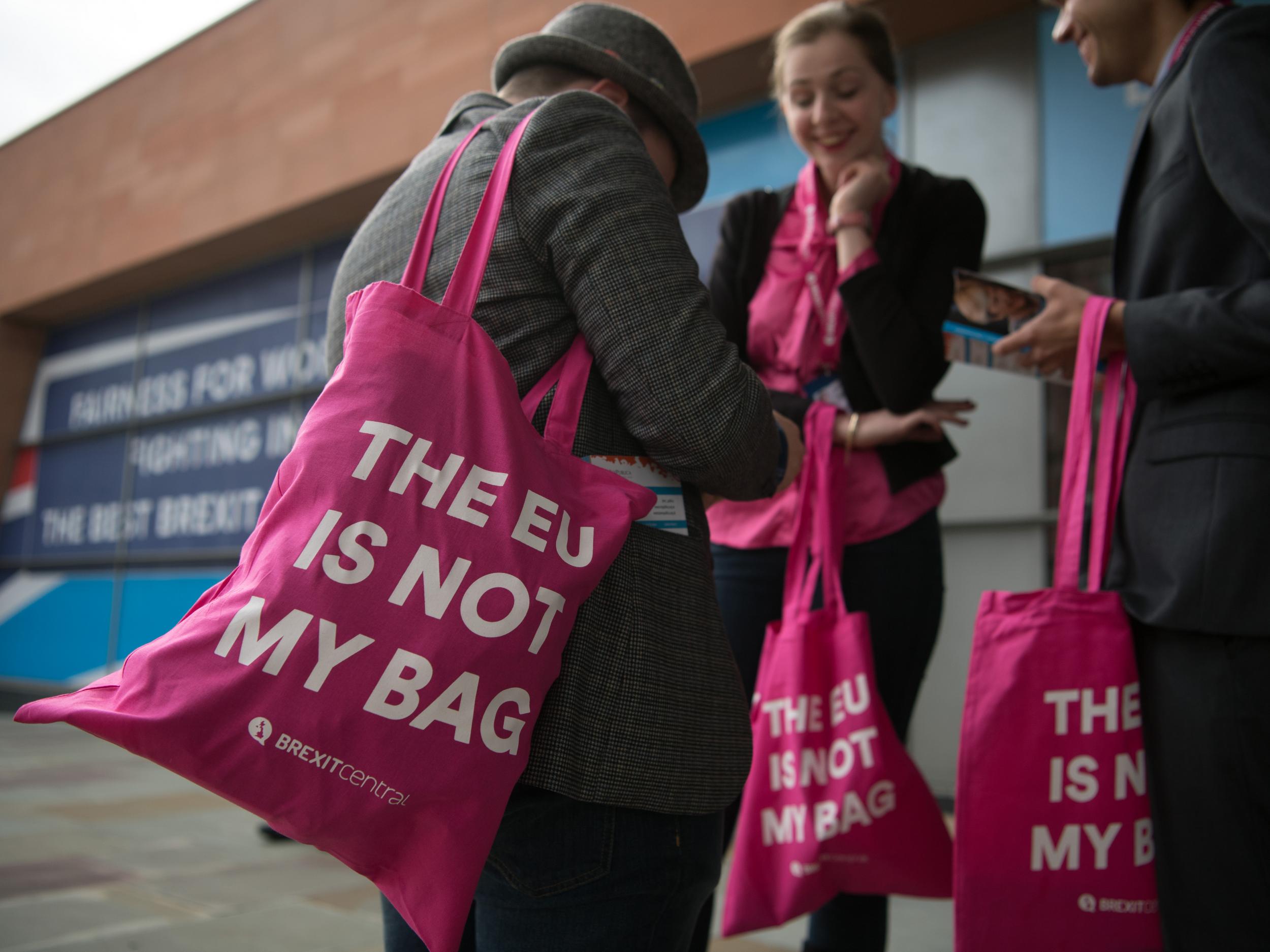The Independent's journalism is supported by our readers. When you purchase through links on our site, we may earn commission.
This is how to change a Leave voter's mind about Brexit
Those who voted Remain continue to post-rationalise that it was a good choice. So they notice all the bad news about Brexit, and are less likely to notice anything positive. And it’s the opposite for Leavers

If you are an ardent Remainer who has sat down with a Leave supporter hoping to change their mind, chances are the conversation will not have ended well. The avowedly Remain aligned Financial Times admits that a change in public opinion looks unlikely – a position backed by multiple leading pollsters.
Why, when Brexit is beginning to look like an increasingly risky enterprise, is that the case?
We don’t like changing our minds
In recent years psychologists have uncovered two powerful forces that stop us changing our minds.
Firstly once we’ve made a decision we tend to stick with it – this is known by psychologists as the “Commitment” effect. This is why charities start by getting us to donate just a couple of pounds, and then persuade us to donate more.
Because of this we all tend to post-rationalise our decisions. So if we’ve voted Remain, then we continue to post-rationalise that it was a good choice. So we notice all the bad news about Brexit, and we’re less likely to notice anything positive. And it’s the opposite for Leavers. Doing this is easier than admitting we are wrong.
The problem for Remainers is that every time you ask somebody to explain a decision, then they are forced to post-rationalise it more, which deepens the strength of their beliefs. This is the underlying reason why polls on the Brexit referendum haven’t moved. Us Remainers have, so far, failed to find a way to move past the 2016 arguments.
It also explains why many experts think that “Trump is on track to win re-election”. Cabinet sackings, botched emergency responses and un-presidential behaviour are all overlooked.

The problem of “Commitment” then interacts with the second problem – if you are more closely linked to your family and community, then it’s harder to disagree with them.
Stanford psychologists Hazel Rose Markus and Alana Connor have hit on an explanation of the death stares between opposing camps. Alana Connor, who grew up in Memphis, before attending Yale, recalled how exceptionally rude she found the debating style of this Ivy League institution. Given the disrespect in these discussions, she was surprised it had not erupted into violence.
They point out that the more deeply linked you are to your community the more likely you are to be polite and avoid conflict in debate. This split between rude and peaceful or polite and violent is, according to Connor and Markus, rooted in two different approaches to life: “Interdependence” and “Independence”. Those who depend more on others tend to be poorer – after all they rely on their family and community to get by. To avoid insults and violence, people use politeness. They found this split applied around the world.

For more confident, economically secure people there are less downsides to being rude in debate – such as the ones Connor witnessed when she arrived at Yale. Annoy your family and community and it doesn’t matter so much. Just think of MPs braying in Parliament or bluntly telling someone they are wrong.
Yet this approach is exactly how we often go about changing people’s minds. We use arguments that seem rude. And we unintentionally entrench other people’s views.
So what’s the solution?
Firstly don’t re-fight old arguments. You won’t win them – in fact, you’ll make things worse.
350 years ago Blair Pascale suggested that before discussing an area of disagreement, look for an area where you agree. A flourishing Britain? A growing economy? Hard work rewarded with fair pay? It is on these common principles that minds are changed.

Then go on to discuss what challenges Britain faces. For instance, how do we make sure everyone has a good job? As you develop common ground then you may find it easier to agree on common solutions. Many Leavers, for instance, are keen that Britain stays in the single market because it will save jobs.
Secondly, be aware of your own style of communicating.
Connor and Markus suggest that you look for topics where you can use your feelings positively. While not everyone has a job, almost everyone will sympathise with a younger relative looking for a better job, education or career. And millions of Britons have close relatives retired in the EU.
And to be truly persuasive, consider that you too may be wrong. Paradoxically, being ready to change your mind is probably the best way to persuade somebody to agree with you.
Ali Goldsworthy is a Sloan Fellow at Stanford University. Prior to this she worked for Which? as their Head of Supporter Strategy and Engagement and was a senior political advisor. She is also a Director of the Joseph Rowntree Reform Trust. Rob Blackie is a digital strategy consultant. He was previously Director of Social at Ogilvy One and Chief Executive of Blue State Digital (UK). He has worked as a senior advisor in parliament and stood for election
Join our commenting forum
Join thought-provoking conversations, follow other Independent readers and see their replies
Comments
Bookmark popover
Removed from bookmarks